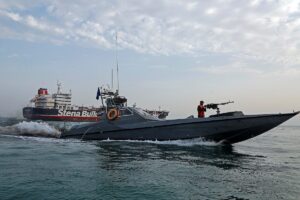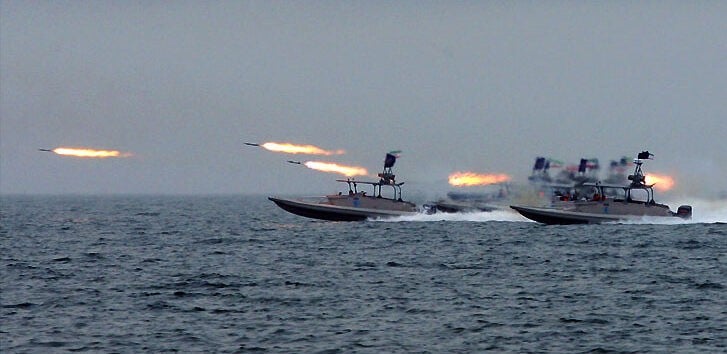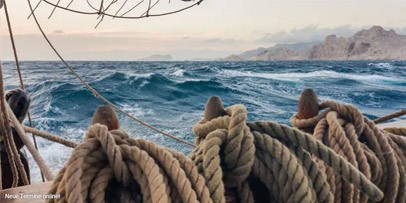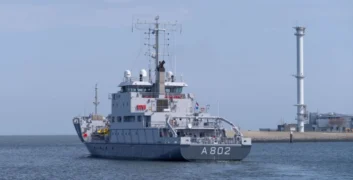Iranian news agencies report that the Revolutionary Guards Corps (IRGC) has been armed with long-range drones and missiles.
Upgrade
The Iranian state news agency IRNA reported that various types of drones, cruise missiles and ballistic missiles with a range of 300 to 1,000 kilometres have been added to the armament of the Revolutionary Guard. This is Iran's response to announcements from the USA that armed marines could soon be protecting merchant ships in the region.
See the article "US Navy: Deployments on merchant ships in high-risk areas" from 16 August 2023.
A flimsy narrative
Tehran regularly claims that the detained ships have violated shipping regulations. However, some ships were allowed to continue their journey after Iranian ships detained abroad were released in return.
Challenging border region
In a north-west passage of the Strait of Hormuz, the shipping route is located in Omani maritime territory. However, the further route in the northern traffic separation scheme towards Bahrain leads through Iranian or Iranian-claimed sea territory when entering the Persian Gulf. Transiting warships - as required by Iran - must register for this passage and obtain a permit.
Legal situation
After the UN Convention on the Law of the Sea ships generally have the right of unannounced, expeditious transit, whereby warships are treated as merchant ships. Although Iran has signed the Convention on the Law of the Sea, it has not ratified it. The USA has also not yet acceded to this agreement.
However, both states have the Geneva Conventions on the Law of the Sea but only the USA has ratified them. Even under these conventions, ships have the right of peaceful passage through the Strait of Hormuz. However, Iran reserves the right to authorise warships to do so.
The USA continues to allow its warships to pass through the Strait of Hormuz unannounced, citing the Customary international lawwhich was codified as part of the United Nations Convention on the Law of the Sea. However, the USA never acceded to the Convention on the Law of the Sea, as already mentioned.

Speedboat of the Iranian Revolutionary Guards. Photo: WANA
Threat
After the Pentagon stepped up its presence in the Persian Gulf and Red Sea, the spokesman for Iran's hardline Islamic Revolutionary Guard Corps (IRGC) warned in a commentary published by the FARS news agency that the Islamic Republic was capable of retaliating to "any mischief" by the Americans, including by seizing their ships. The new missiles have a greater range and are more precise. The cruise missiles could attack several targets simultaneously and could still be manipulated after launch. This would give the IRGC its first long-range ballistic missiles, allegedly made entirely in Iran. They are even capable of completely destroying enemy aircraft carriers! Moreover, the Persian Gulf is perfectly capable of ensuring the security of the region itself - no American forces are needed in the area, according to another spokesperson.
Action - Reaction
So there's no sign of de-escalation. A functioning industry and therefore prosperity in the world, not just in Germany, depends to a large extent on free and safe shipping routes. Threats to close one of the world's most important sea trade routes, as Iran has repeatedly announced, must not go unanswered. Prudent policies and good responses on both sides are needed now.
Source: gCaptain, Wikipedia













0 Kommentare